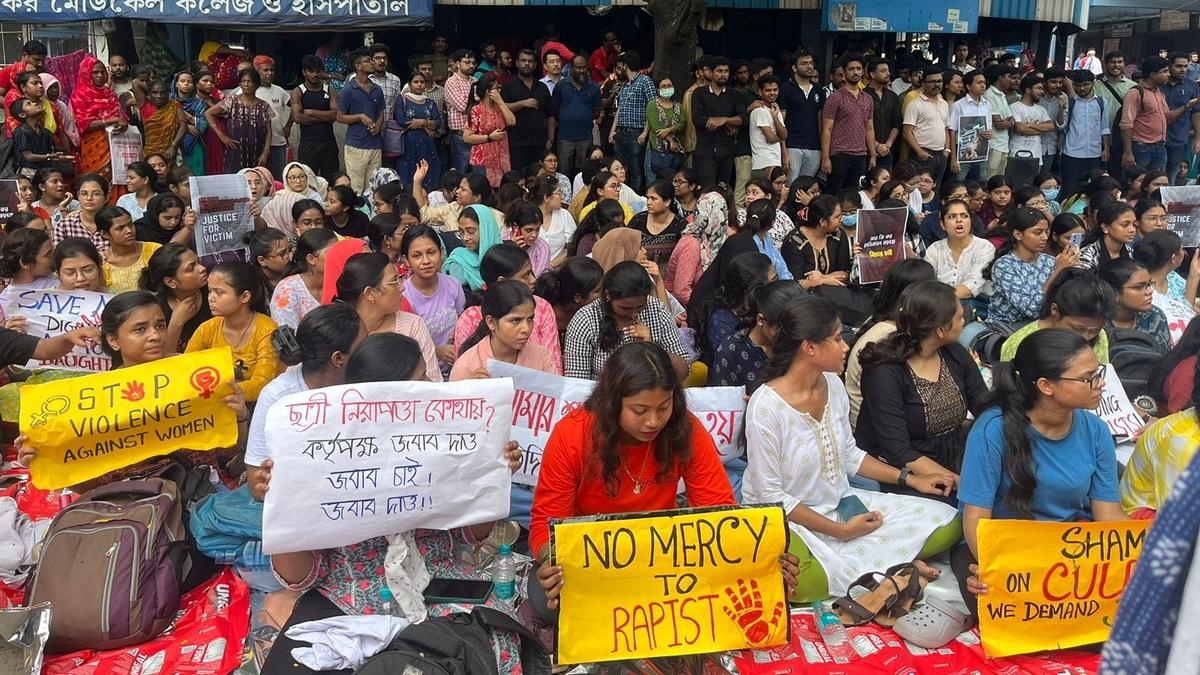 |
|
The recent conviction of Sanjoy Roy for the rape and murder of a female medical student at R G Kar Medical College and Hospital has sent shockwaves through the community. The case, marked by its brutality and the vulnerability of the victim, has sparked widespread outrage and renewed calls for increased safety measures for women in India. However, a surprising element has emerged from the aftermath of the trial: the response of Sanjoy Roy's family. In a remarkable display of acceptance and empathy, his mother, Malati Roy, has publicly stated her willingness to accept the court's verdict, even if it means the death penalty for her son. This act of acknowledging the gravity of the crime, despite the immense personal pain involved, stands in stark contrast to the defensive postures often adopted by families of convicts in similar circumstances. Malati Roy’s statement, made on Sunday, underscores a profound understanding of the law and a willingness to confront the harsh reality of her son's actions. Her words, expressing sympathy for the victim's mother – a sentiment rooted in shared womanhood and motherhood – reveal a depth of compassion that transcends the immediate familial bonds.
The statement issued by Malati Roy carries significant weight, not only for its emotional honesty but also for its potential influence on public perception. In a society often characterized by a culture of protecting perpetrators, her unflinching acceptance of the judicial process provides a powerful counterpoint. By choosing to publicly acknowledge her son’s potential guilt, she inadvertently highlights the importance of accountability and the necessity of bringing perpetrators to justice, regardless of personal relationships. This act of public contrition also offers a subtle rebuke to those who might attempt to shield Roy from the consequences of his actions. It serves as a testament to the strength of character necessary to accept difficult truths and the resilience needed to navigate the aftermath of such a devastating event. The act of publicly acknowledging guilt, rather than denying or downplaying the severity of the crime, is a courageous and potentially precedent-setting move in a country where such acts often go unacknowledged, or worse, are actively defended.
Beyond the immediate impact on the Roy family, Malati Roy's statement raises broader questions about the social and legal landscape surrounding such crimes. The case highlights the ongoing struggle to address issues of gender-based violence, the need for comprehensive legal reforms, and the urgent necessity of fostering a culture of accountability within communities. It underscores the ongoing challenges in ensuring the safety and security of women, particularly within educational and healthcare settings, and prompts renewed attention to preventative measures and effective enforcement of existing laws. The lack of attendance at court hearings, as mentioned by Malati Roy herself, reveals a detached approach from the legal proceedings, while also highlighting the family's struggle to reconcile with the events. The fact that even the sister of the convict refrained from making any claims against the court's judgment points to the possibility of a genuine acceptance of guilt. The family's hope for a thorough investigation and justice for others involved, if indeed others were involved, demonstrates their desire to fully comply with the legal process and to ensure justice is served in its entirety.
The willingness of the Roy family to accept the consequences of Sanjoy Roy's actions, irrespective of personal feelings, represents a significant development in this case. Their acceptance of the court's decision, without challenging the verdict, sets a precedent that should be commended. While the pain and suffering caused by this crime remain undeniable, the response of Malati Roy and her family offers a glimmer of hope, a testament to the power of acceptance and the importance of accountability in addressing acts of violence against women. Their statement should serve as a reminder that justice, though often painful, is essential for healing and reconciliation within society. The case continues to serve as a stark reminder of the ongoing need for systemic reforms and societal changes to ensure the safety and security of all individuals, particularly women, in India and worldwide. This case exemplifies the complexities surrounding justice and the often-conflicting roles of family, law, and society in the aftermath of such tragic events.
The incident at R G Kar Medical College also underscores the need for a comprehensive review of safety protocols within educational and healthcare institutions in India. The safety of medical professionals, particularly women, must be prioritized, and robust measures must be put in place to protect them from violence and harassment. This includes improved security measures, better training for staff, and the creation of a supportive and responsive environment where individuals feel safe to report incidents without fear of retribution. The case serves as a chilling reminder of the vulnerabilities faced by women in professional settings and the urgent need for comprehensive and effective measures to combat gender-based violence. This incident will serve as a tragic lesson to the healthcare and education sector, emphasizing the imperative to ensure the well-being of professionals working in demanding and often hazardous conditions.
